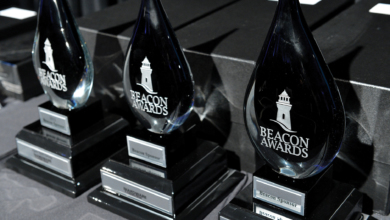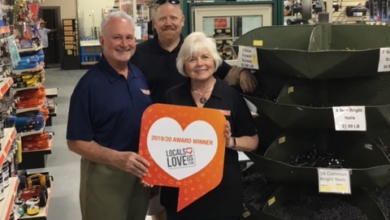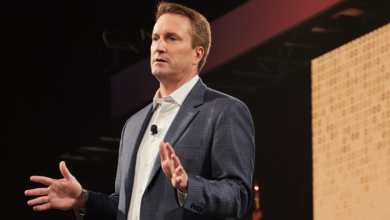Striving Toward a More Diverse and Inclusive Industry
By Gina Schaefer

Gina Schaefer (back middle) celebrates International Women’s Day at Logan Hardware with key staff members.»
I have come to accept that my efforts regarding Diversity, Equity and Inclusion (DEI) will never be complete. However, we have tried to make it a way of life since we opened our first location in 2003. Over the years, we have worked to strengthen our interest, which to me means having a diverse employee base and leadership team that reflects the cities in which we operate.
DEI is not just a Human Resource function. I believe it needs to be initiated, championed and supported by the leaders of the company, so that the entire team knows they are valued and that it’s important to the company as a whole.
When the protests started in D.C., one of the first marches (and many subsequent ones) came down the street in front of my office, which is in our original store. Without hesitation my husband said, “Let’s invite the staff and customers to go outside and join in.” So we did—and every one of our guests and employees walked outside in solidarity. It isn’t enough to say you believe in DEI—we need to actually try and live it, which is a constant learning process.

A Few Cool Hardware Store employees get ready for Pride Week at Logan Hardware. The store is located along the annual DC Pride Parade route.»
Attracting Best Team Members
The first thing we did almost two decades ago was remove the obstacles from employment. Long before “Banning the Box” became a thing, we took it off our employment application. When I speak to business owners about hiring returning citizens (after incarceration) someone always asks, “How can you trust “them?” I love this question, because I can launch into my stories of favorite non ex-offenders who stole from us or had bad customer service skills. Level the playing field and the field becomes that much brighter.
By studying and implementing best practices regarding unconscious bias in hiring we also broadened our prospects. Just like asking age or marital status on an application has historically created a layer of bias interviews, a business owner can ensure that their hiring practices are also more equitable by requiring more than one person to host each interview, which allows for a broader opinion base.
We celebrate our team and invite our community to do so as well. My office is based in our original location and has 26 team members—15 of those employees are in some type of recovery program. That is not something we are quiet about—we shout anniversaries from the rooftop if the celebrant wants us to. Building a foundation of support is as important to building a strong corporate culture as it is to that team member’s character building and growth. Our folks in recovery come from all walks of life—drugs and alcohol do not discriminate based on age, gender, race and sexual orientation, so we won’t either.
Everyone has heard the expression “what gets measured gets done.” Each year our HR manager reports to our CFO (my husband) and me some key metrics on hiring. This year we have 301 employees and we measure areas such as:
- What percentage of our employees are women—36.54%
- What percentage are African American (34.55%) and White (43.19%)
3. How many of our leadership team is female—16 out of 36
Once we know where we are, we can take action where we think we should. This isn’t always an easy conversation, but unless we are willing to talk about it nothing will change. We measure to keep ourselves accountable. If we don’t, who will?

Manager Tim Hamm takes care of a customer at Logan Hardware in Washington, D.C.»
WHO ARE WE ATTRACTING AS CUSTOMERS?
When I opened our first location, I read that 70 percent of home improvement decisions are made by women. Yet no one (still) can tell me how many women actually own hardware stores. Ask your female associates or leaders how often a customer asks them “if there is a man who can help them with their product question.” It’s embarrassing that it still happens. So, we actively expect our teams to attract and be helpful to customers from all demographics. If women are making the decisions, then they should be able to get help from a woman in a hardware store and the industry should count us.
“Like begets like” is something that resonated with me when I was learning about how executive teams and boards work. For example, if an executive team is made up of all white men, they are infinitely more likely to only attract and therefore hire white men. Like begets like. If my team is made up of Black women, gay men, someone who speaks Spanish and so on, think about how much more comfortable my customers will be if they want to identify with who is helping them and how that same approach could help grow your business. We try to make conscious decisions when purchasing and merchandising to lend support to young businesses, particularly those started by women and people of color.
We might have a slight advantage of being in diverse urban areas, but that doesn’t necessarily make our jobs any easier. Working on DEI is like working your job all the time—it rarely happens naturally, it requires intention and it’s our corporate responsibility to future leadership growth.

Dominic Robinson and Davon Betts with a customer at Waverly Ace in Baltimore. »
I reached out to Chris Jensen, who is editor/principal of The Hardware Connection, because I was proud of a recent article in the magazine that explored diversity as a topic. (To read that story on Tony Powers of Intown Ace, click here.) As communities cope with explaining to their children why Black Lives Matter and must have a voice and place in our country, a magazine that historically hasn’t had a diverse customer base hit it head on and was willing to continue the conversation.
I would encourage all retailers to take a deep dive into their own metrics, biases (we all have them) and explore how we as hardware retailers can help grow a new diverse base of leaders and owners.









